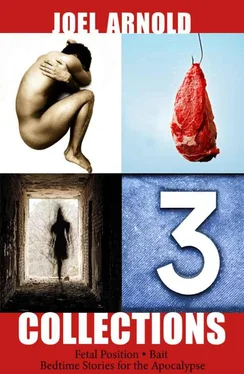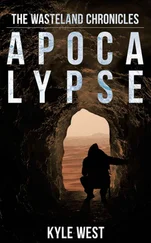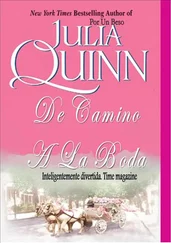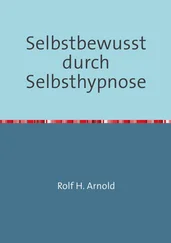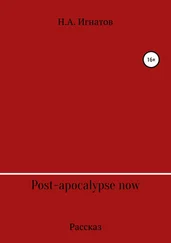“Must all be done by hand. No sewing machine. Only by hand.”
She started him out with a simple quilt. An easy two-foot by two-foot square divided into sixteen six-inch squares. She guided him through the process. “You must listen. Pay attention. Remember.”
Sometimes Angela worked with him instead of Eugenia. Angela, who rarely talked, rarely smiled, rarely looked at him. But if he got stuck on something, she silently took his hand in hers and guided it through the correct motions. Sometimes, her soft, silken hands lingered on his and massaged his stiff knuckles.
He was slow. Clumsy. Yet he was consistent. Each project grew progressively harder. He worked with different fabrics, different textures, ones he’d never imagined used in quilts.
Weeks passed. Months. His house became cluttered with scraps of material, thread, works-in-progress. It wasn’t just the feel of the needle piercing the fabric that made him continue, or the way the quilt glacially spread a comforting warmth over his lap. There was something more. A quilt had a front, a back, an inside. Three dimensions. Something tangible. Something you could see, feel, hold.
The winter turned frigid. A crystalline silence spread over Pearce’s street. Calls from friends grew infrequent, almost non-existent. But he hardly noticed. His rough, callused fingers grew deft, manipulating the needle and thread smoothly, precisely. He’d never been more focused. The walls of his house, the entire world, melted away as he worked, his fingers moving in a ceaseless, meditative rhythm.
One night, there came a soft knock at his door. Pearce ignored it at first, his fingers coaxing a needle a thread through a circle of thick leather. The knock came again, as softly as the first time, but now Pearce put down his needle and thread, his patch of leather, and threw on a shirt and sweat pants. He opened the door, the cold air sending shivers through his body.
Angela stood there, a forlorn smile streaked with thick lipstick spread across her face. She stepped inside, stepped past Pearce, turned and stared at him, that pitiful smile stuck there.
Maybe it was a way to pretend, to go back in time, blot out the present and pretend . Maybe it was the pent-up loneliness, the longing that allowed him to accept Angela’s outstretched hand, soft and dry, let himself be pulled to his bedroom, let her hand slide inside the waistband of his sweats and grab hold of him.
Maybe it was a hundred maybes, but he let her wrap her body over his, fall back onto the bed and pull him onto her.
A dry rasp escaped her throat. Her limbs frantically tugged at him, wound around him.
She was smooth, but dry. She bucked at him, and he thrust into her, the friction almost painful, turning his skin raw until he lost himself, becoming a wet oasis in her dryness. She left him on the bed staring at the ceiling, wondering if he’d dreamt the whole thing, the tears in his eyes glistening like shiny needles.
No. This wasn’t right. He got up. Pulled on a pair of jeans, a sweatshirt, his hunting boots.
He crossed the street, the cold penetrating his clothing, his skin, turning his blood to slush. He stood at the Bolt’s front door, his breath spilling from him, fickle and ghost-like. He didn’t knock. Instead, he circled through the dry snow to the back of the house. Everything was dark, save for a single shaded window that glowed with a soft, amber light. There was a narrow space between the shade and the frame that was wide enough for Pearce to see inside, wide enough for him to see—
Angela’s skin fall off.
Her back to him, her shoulders slumped, her head folded forward, one hand tugged at her face, and—
—her skin fell off .
Sloughed off in one piece like a loose dress, catching a moment on her hips, then continuing on to the floor.
What was left was a framework of yellowish bones, speckled with black mold. Inside the ribcage, something moved. Not a heart. Something alive, smacking back and forth against the bones like a trapped animal. She bent down. Pulled something else up around the rotting frame-work. A new skin, only it went up and over the bones like fabric, like a blanket, a quilt.
And when she turned around, it was no longer Angela.
It was Eugenia.
She tucked the edges of the fabric-skin under her brunette wig and stepped out of view.
Pearce threw up in the snow and ran.
He sat on the edge of his bed rocking back and forth, rubbing at his forehead with the heel of his palm. It felt like something had crawled up his esophagus, some fidgety creature clawing at his tonsils.
What had he seen? What had he just seen?
Eugenia’s words from all those months ago when he first went to her house came back to him.
“What do you want?”
Now it took on a whole new meaning. What was she? What else could she do?
What do I want?
His head filled with a patchwork of thoughts, a sewing machine buzz in his ears, and he rubbed his forehead again. Rocked back and forth, thinking.
Thinking…
He wanted — he wanted—
What do I want?
He wanted…
He banged the side of his fist hard against the old woman’s door. (Old woman? Could he think of her as a woman any more?) He waited, tried to listen over the sound of his own heavy breathing, over his heart pounding hollowly in his chest, for the sound of her footsteps padding toward the door.
“I know what I want,” he called out to the solid, stubborn door. “Let me in. I know what I want.” Three more hard, stinging raps with his fist. It was a sting he wanted to feel.
The door opened. Eugenia looked so small, so inconsequential, and the blood raced through Pearce with such force, that all he could do was let out a guttural laugh.
Her body ragged, her clothes off-kilter, her painted eyebrows too pointed, one of them higher than the other.
He pulled a picture from his pocket. “Her,” he said. “I want her.”
Understanding worked its way across Eugenia’s features. She studied the photo with her obsidian eyes. “Your wife.”
“I’ve seen what you are. I know what you can do,” Pearce said.
“You don’t know what you’re asking.”
He felt the rest of his heart dying, the fibrous tissue crumpling in on itself.
She bowed her head and Pearce heard the bobbin-rattle of her breath. “Throw away everything. All your thread. All your needles. All your fabric. We use the real stuff now.”
And this time, instead of writing out a list for him, she whispered into his ear.
He paced distractedly through his house, glancing at the pile he’d gathered on the dining room table. The blinds were shut, the curtains pulled. He broke the seal on a bottle of rum that had sat in the cupboard for the past year, stared at it, then took a quick swig. He grimaced and screwed the cap back on.
He lit two dirt-brown candles the old woman had given him and turned off the lights. Thick green smoke belched off the burning wicks, carrying the musky odor of decaying leaves. He coughed. Picked up the strange needle Eugenia had given him — a feather, the black and white bristles slick along the quill with an oily substance she’d spit from her mouth.
He wrapped it with the thread she’d given him, a thread glistening with drops of his own blood. He inserted the needle into one of the dresses that Mary used to wear. Even over the scent of the candles, he smelled a trace of her perfume. He began to sew.
The needle was thick. It took some time getting used to the way it punctured the material, took some getting used to the slickness of the thread, of remembering to dip it in the dish full of blood that continued to drip from a small slit under his right nipple.
Читать дальше
